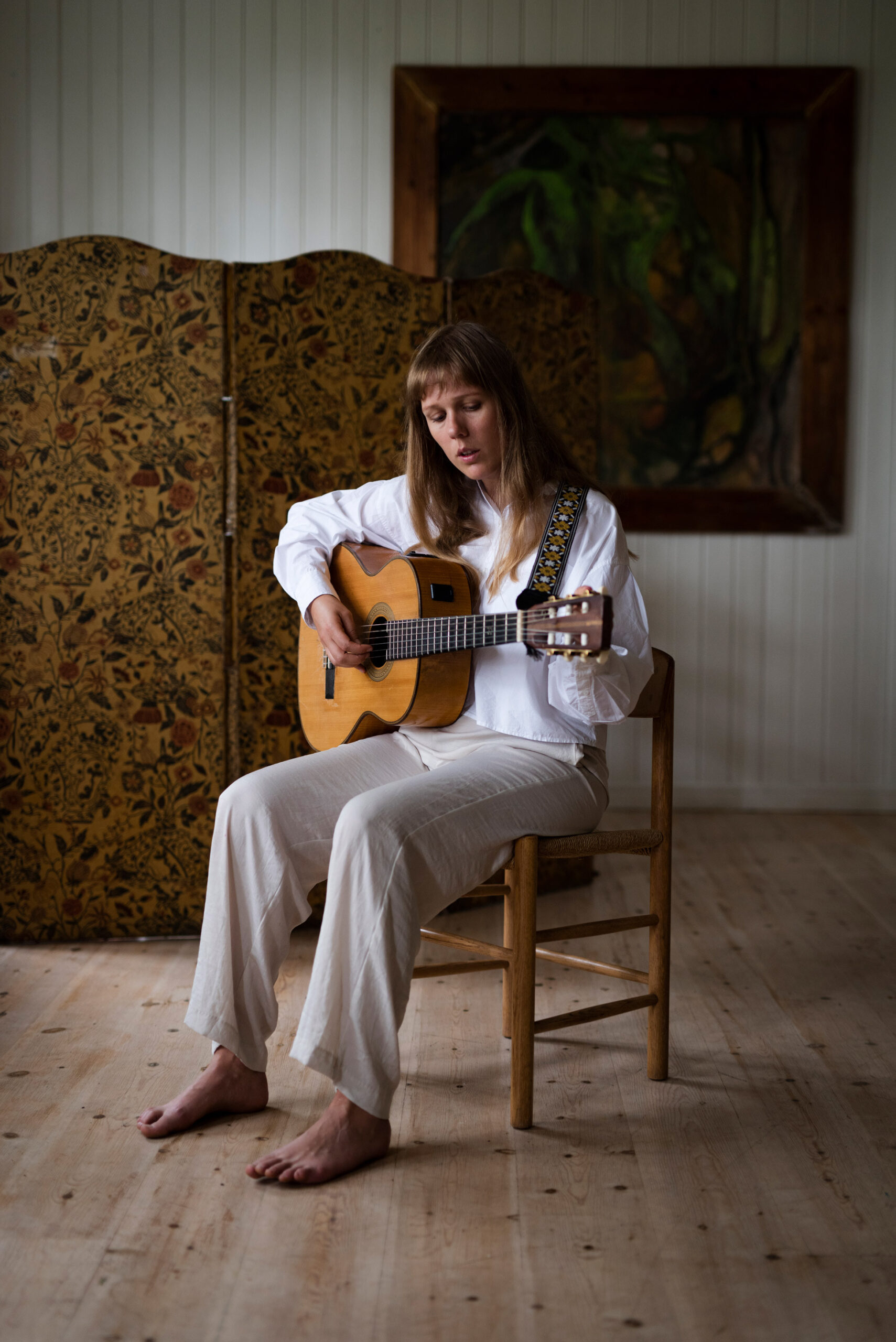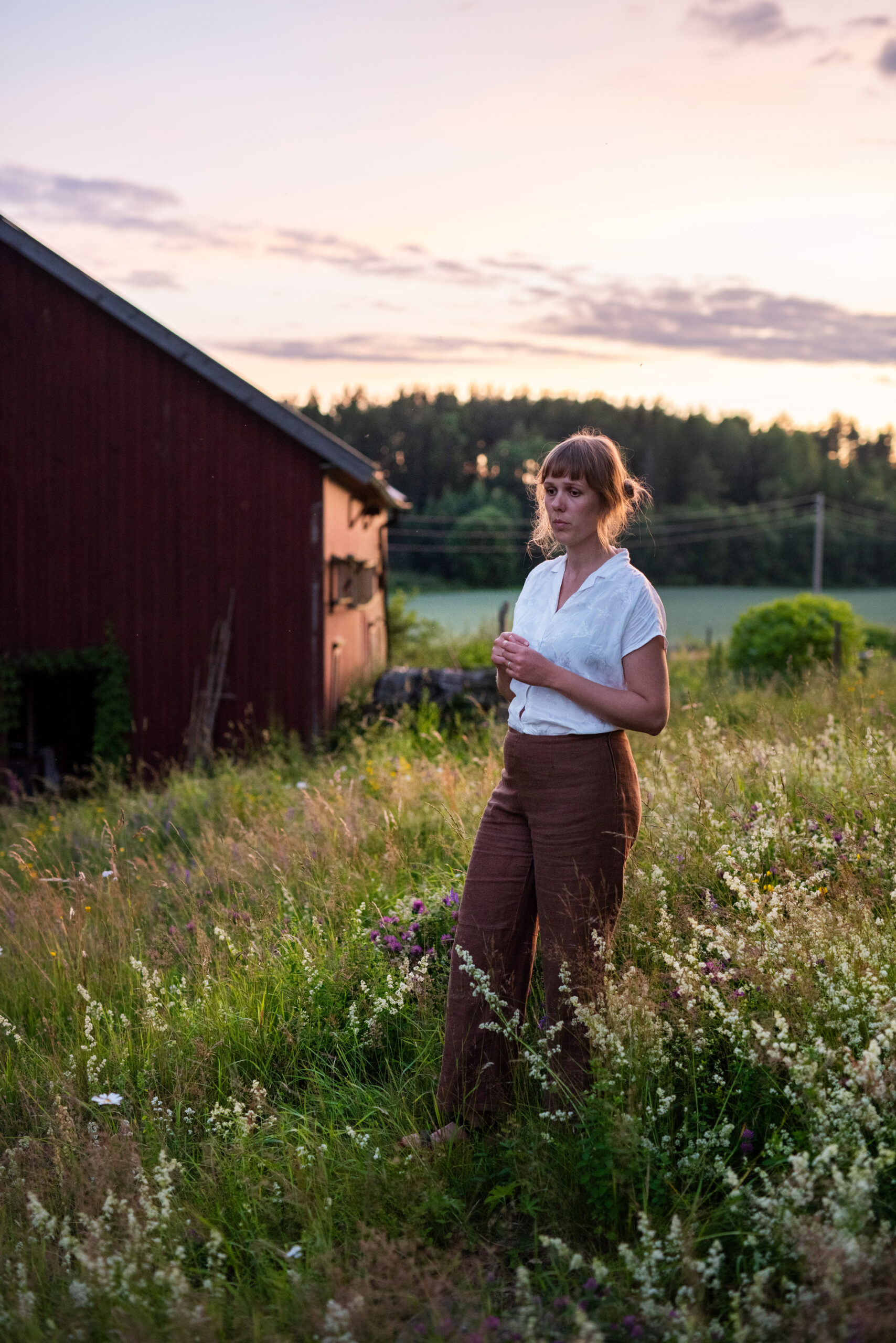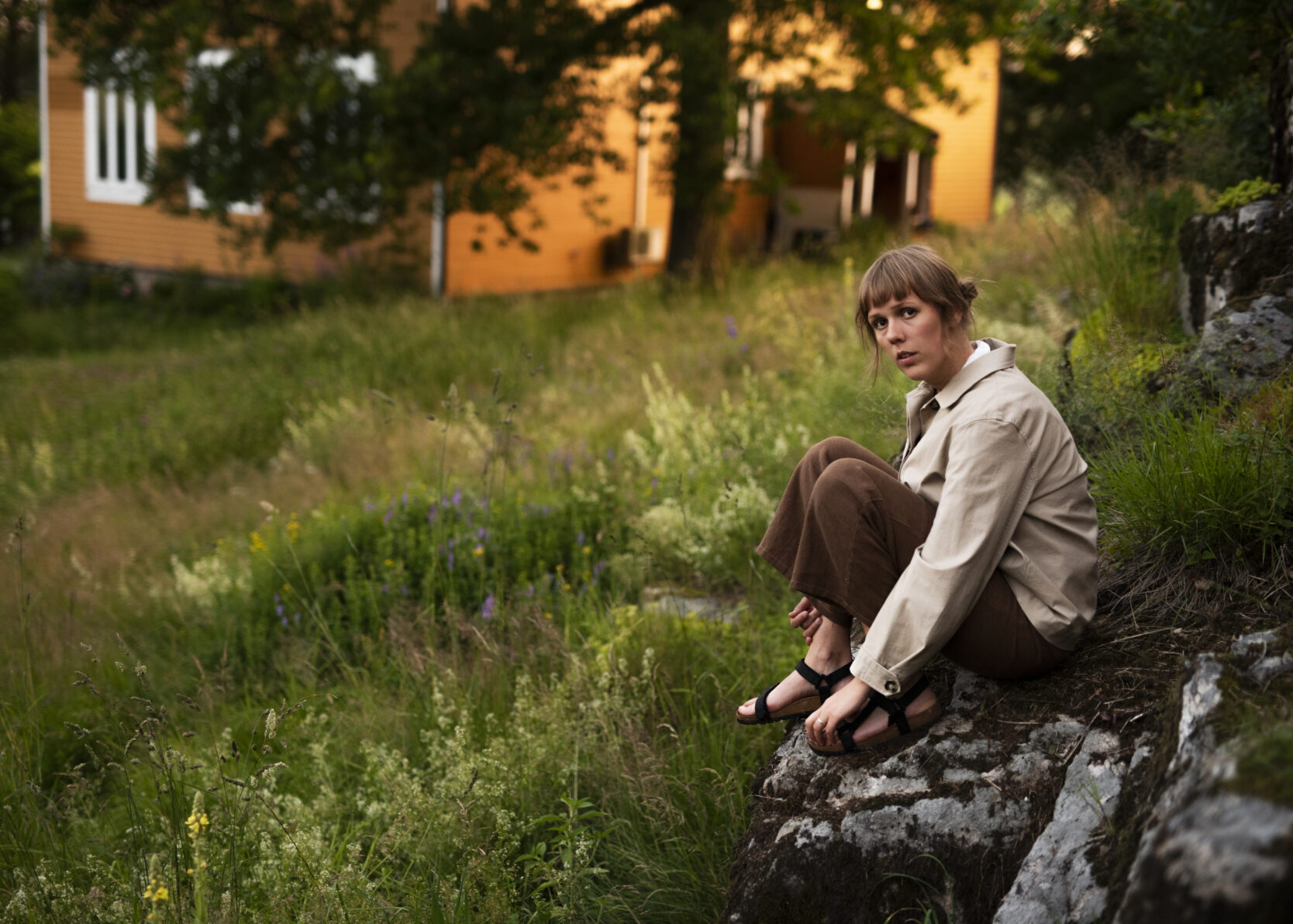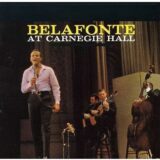“Jeg elsker musikken din,” I tell Norwegian folk singer Juni Habel near the start of our virtual meeting, she in her country house an hour outside Oslo, and me in my country house outside New York City. She smiles kindly, holds her hands to her heart, and tells me I said it perfectly. She is nothing if not gracious, speaking exceptional English with a poetic lilt.
Modesty, she tells me, is what makes her distinctly Norwegian. Naming her cat Lisa, not so much. (“Lisa is not but a common name actually, but it is in The Simpsons,” she says.)
And then, of course, there’s the music. I found Juni via her second album, Carvings, released in January, a follow-up to 2020’s All Ears. To me, there’s a welcomed warmth — a haunting — only manifested in a country centuries steeped in legends of Vikings, mischievous forest creatures, and squally, high-cliffed fjords.

It’s too easy to draw Nick Drake comparisons — and not incorrect — given the stark, almost mortifying, intimacy. Juni Habel’s music is distinctly her own, with exquisite harmonies accompanied by bare-boned, thoughtful guitar and occasionally another vocalist.
For so many reasons, it was important to bring her family into her music; though they play very little on the album, she refers to it as “homemade,” created and recorded on the large property they share, the guitar and vocals in just one take. “I remember saying to myself that if I should do this, if I’m doing music, then I will do it my way and with my rules,” she says. Part of the “rules” included keeping the music free during production: “It can easily be institutionalized in a way and stop ‘living’ if you work too much on it. I feel it’s very important to leave a project… I think I’m a quick producer and writer as well. I think very quick…like quick strokes.”
Despite what her songs reveal, she claims she’s not a very emotional person. “I’m more rational and efficient, and not very much in touch with my emotions myself. Sometimes I find it hard to be vulnerable with other people. My songwriting is a place where I can open up…like that’s a more soft part of myself, actually.
“I heard [Big Thief’s] Adrianne Lenker also said something like…that songwriting is the most loving thing she can do for herself, which resonated with me very much…”
Carvings was inspired by Juni’s need to process the devastation of losing her sister in a tragic accident seven years ago. “I wanted to get in touch with my sister through the music,” she says. “I could ask myself a question, ‘Is this worthy, or am I simplifying things?’ It’s very difficult to put this experience into art because the grief can also be not very pretty. It can be very chaotic, and there can be a lot of anger and not-so-pretty emotions.”
Of course, it’s impossible to capture the full trajectory of grief in anyone’s creative process, and Juni acknowledges that she didn’t — couldn’t — accomplish that here. And that’s okay.
“I didn’t manage to capture everything into the songs. I was asking myself if I was doing it too simple or too pretty. During the process, I learned myself that I don’t have to do anything with my music, and that this relationship I had with my sister…it remains. No matter what I do, that music really doesn’t matter that much, which is why it’s so great. I felt I learned a lot about not taking music too seriously during the process.”
As the music reflects, Juni approaches the process with little pretense, claiming she herself is surprised by the outcome. “I don’t plan for much…I just sit down with my guitar and play a little and see if I can find anything cool. Then I try to sing a little, and then I try to jam a little, and then maybe it can be a song.” Songs like “I Went out and Sought for Your Name” and “I Carry You, My Love” nestle nicely alongside lighter, more whimsical tracks like “Little Twirl.”
While the “search for the dead” and the wrestling with grief is clear from the first note, Carvings is far from a sad-song collective. Instead, the experience inspired a mission of connectedness and unity.
“The album…is about breath,” she says, carefully. “When you experience loss, you become very aware of your relationships and a sense of belonging. I wanted to write about the beauty, the beauty of the people belonging together. I don’t get inspired by sadness or hopelessness. I’m inspired by hope and the people belonging together. That is also perhaps why my family is an important part of my music.”
The music came from the need to create something beautiful out of so much sadness. “I think that is a need you have when you experience loss, that you want to create something beautiful to honor the dead.”
Juni learned to play the piano as a girl, then guitar, and attended a music-focused high school, where she sang opera and Norwegian folk music. School “broke her confidence” and dulled her creative impulses, so she swore off music all together — until she started writing songs three years ago at 26. “I’m glad I had the break, and I’m glad I started again. Everything is good in the end,” she says.
When she says that her mother’s singing around the house was an influence, one’s mind jumps to something epic and mystical. “We were listening to a lot of Celine Dion,” Juni tells me, “singing in the car together super loud.” Eminem, too. “My mother has the coolest music taste. It’s super. I feel like that’s very inspiring.”
As she explains, Norway is devoted to nourishing its traditions — “a living tradition,” she says, acknowledging that it’s common to hear traditional folk music updated with a modern interpretation. (She feels her music has more of a British folk influence.) “We are very Norwegian here,” she says. “That’s who we are…because we have been under Denmark for decades. We have only been a free country for 200 years. That is why we have been very, very determined to create our own country and be very aware of what is Norwegian.
“We’re a national romantic.”

With a six-hour time difference between us, the end of Juni’s day is signaled with shadows over her wood-planked wall. She’d started with her day job, working with young children where she can utilize another great Norwegian tradition: storytelling. “We also use fairy tales a lot in teaching. I feel like storytelling is a very important part of growing up in Norway. Also, the fairy tales can teach you things about life. They used [fairy tales] a lot to scare the kids from doing the wrong things and to behave and stuff. You shouldn’t go out into the dark waters because then there are Näcken, the water trolls. Näcken lives in the lakes. You shouldn’t go in there.”
When she was little, Juni’s mother kept her from wandering by telling her a troll lived “just over there.”
Though her music falls distinctly under the category of Norwegian folk, its genre-defying simplicity makes it ready-made for an indie film soundtrack. When asked what she’d like people to feel from her music, she responds, quickly, definitely: “Playful.” (Or “leken” in Norwegian.)
But then she pauses, thinks, revises.
“I don’t want to be a cool artist because I’m not,” she says, though one could, after a minute of meeting her, argue for her undeniable coolness. If you can’t meet her, just listen to her music.
Then she adds: “That could also be a word that I want to put in [my] music: ‘human.’
“I want to be human.”





